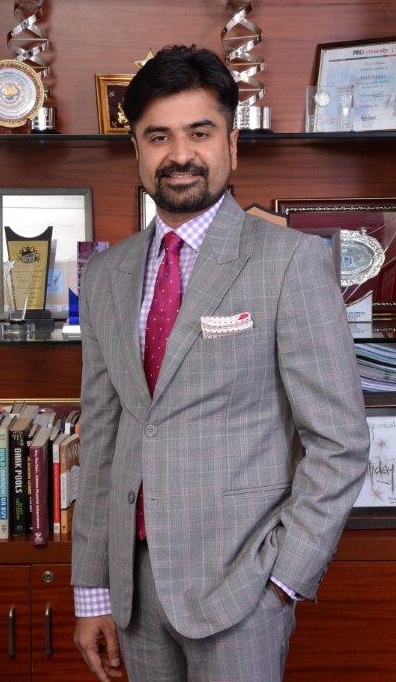 What changes have you brought about after you joined MOSL?
What changes have you brought about after you joined MOSL?
When I joined, we were managing Rs. 1,000 crore in PMS and Rs. 250 crore in ETFs. I realized that the core strength of MOSL is active management. Since ETFs were not taking off as expected, we shifted our focus towards active funds.
We decided that we wanted to be an investment management firm and not a marketing firm. Thus, we never promote products. We promote our investment philosophy and process which is ‘Buy Right Sit Tight’. We went one step further to define the meaning of this philosophy. Thanks to our clear positioning, we are now managing Rs. 3,600 crore in PMS and Rs. 2,400 crore in active open end equity funds. As of now, we are managing close to Rs. 6,000 crore in equity.
What is your differentiating factor? How are you positioning MOSL AMC among investors and distributors?
People get confused between competency and brand. If you have competency and deliver results then the brand is automatically built. However, in our business it works exactly the opposite. Investors buy funds by looking at the brand. However, having a brand is not a guarantee of competency.
The industry is dominated by what I call super marts. Many AMCs have been sponsored by banks, manufacturing companies, real estate companies, mortgage companies and so on. Mutual fund is one of the many businesses they have.
Motilal Oswal has always been an equity research company for 30 years. Apart from equity research, we realized that we can manage investor’s wealth. Thus, we got into investment management business.
My challenge is in communicating what our brand stands for. Some people tell me that your sponsor is a broking company and such companies are not perceived well. I tell them that our only competency is equity and we do not have interests in other businesses unlike other AMCs. Having a broking and equity research background is actually a strength and not a weakness.
As a niche player, I have to consistently say no to things which don’t fall in our scheme of things. We are a specialist in equity. We want to maintain our image as a specialist fund house.
Distributors are worried ever since direct plans were launched. What is your advice to them?
I think no product should be sold directly by the manufacturer to the consumer. There is always a value in third party advice. If you want to buy a car you go on cardekho.com or carwale.com to get validation before buying a car. If an investor goes to the office of a particular AMC, then the AMC will sell its own schemes. On the other hand, a distributor does not have vested interest in any AMC. He will offer the best advice and give investors a choice.
Distributors allege that some AMCs are promoting direct plans…
There are some AMCs who would like to go direct. AMCs need to clearly define their business model. We have 18 employees in investment function and only 29 employees in sales. We don’t have offices in every nook and corner of the country. If we wanted to go direct we would have 100 branches and 500 sales staff. There is nothing right or wrong. It is all about communication. Both distributors and AMCs need to clearly define what they are trying to do.
If you look at the regulatory changes (direct plans, removal of entry load, capping of commissions, etc.) over the past five years, it is clear that distributors need to start charging their clients. To charge investors, distributors need to show value.
Let me give you an example. After a thorough health checkup if a doctor prescribes a crocin or combiflam will the patient pay the doctor a fee? Does the doctor deserve a fee? We see a doctor only when the crocin or combiflam doesn’t work. Similarly, mutual funds are prescription products. They are not sold over the counter. To be able to command a fee, distributors need to understand the needs and goals of their clients well and show value.
Distributors blame external environment for their business. I would say that they need to have influence over their clients.
Most distributors whom I have met are responding to the pull from customers. Many a time, clients refuse to buy what a distributor recommends. Clients have already made their choice of investment and distributors accept it. It doesn’t work like this. Distributors need to show their expertise to clients. You don’t say that you don’t want a particular medicine prescribed by your doctor. You follow the doctor’s advice. If clients don’t pay heed to your advice they won’t pay you a fee.
You are very popular with distributors…
I don’t aim for popularity. One needs to aim for effectiveness. If you try to be popular then you are sacrificing effectiveness. I try to talk straight and call a spade a spade. I speak what I believe.




